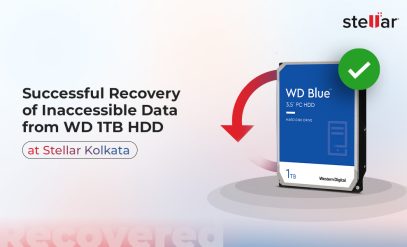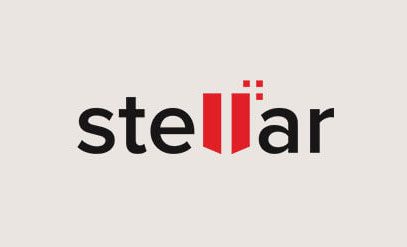Cloud Data Recovery, HDD Recovery
Difference Between: Private Cloud vs Public Cloud
Summary: Cloud computing has revolutionized the way businesses manage & access IT resources. But when choosing a cloud solution, a key question arises: private cloud vs public cloud. In this guide, you can learn the differences between these two models. It will help you make the right decision as per your needs.
What is Cloud Computing?
Think of a way to access computing power, storage, & software applications without the burden of managing physical servers & infrastructure. That’s the essence of cloud computing. Many cloud providers offer these services “on-demand” over the internet. Users access these resources through a web browser or API. Hence, it eliminates the need for upfront hardware & software investments.
What are the Different Types of Cloud Deployment Models?
Before you get into the difference between Public Cloud vs Private Cloud, let’s take a look at the different deployment models that cloud computing offers:
- Public Cloud: It’s more like renting an apartment than buying a house. You share resources with others, but you also get flexibility, scalability, & lower costs. Perfect for startups & workloads that don’t require the highest level of security.
- Private Clouds: You have your own personal data center in the cloud. You have ultimate control over security & packaging. This feature is ideal for hyper-sensitive data or complex regulations. It’s like having a computer designed for the needs of your business.
- Hybrid Clouds: It is a collaboration of Public & Private Clouds. Like a hybrid, it can get the best out of both cars. You can migrate workloads to the public cloud for cost savings. There is also important data backup in your private cloud. Great for companies that are slowly transitioning to the cloud or have specific security needs.
- Multi-Cloud: In the above context, we learn about Public vs Private vs Hybrid Cloud. Next, we’ll examine multi-cloud. It uses multiple cloud providers, public or private. Similar to subscribing to a variety of brands. You can use one cloud provider for email, another for website hosting, & a third for document collaboration. It gives you flexibility & avoids vendor lock-in. However, management can also be more complex.
What are the Key Differences Between Public vs. Private Clouds?
Choosing between a Private and Public Cloud can be tricky. Now, let’s delve into the critical distinctions between them:
1. Infrastructure Used
Public Cloud providers offer a wide range of services that are constantly growing due to their focus on scaling & growth. They leverage the data center’s global network, giving you access to resources tailored to specific locations & computing needs.
It is almost impossible to replicate this scale & innovation in private. Private Cloud infrastructure can easily become obsolete because an organization’s priorities can change over time.
2. Security
Security in a Private Cloud depends on your deployment model. When you host your infrastructure, you’re fully responsible for its physical security.
Private Cloud management, where a third party manages the infrastructure, shifts physical security responsibilities. However, in both cases, you still have a responsibility to secure your data & cloud environment from unauthorized access.
Public Cloud shared security responsibilities. The provider protects the hardware & software infrastructure while you maintain the security of your data & applications in the cloud.
3. Deployment
Setting up a private cloud is difficult & time-consuming. This requires significant investment in infrastructure & skilled workforce with advanced coding & engineering skills.
Public cloud deployments are fast & easy. Suppliers often provide user-friendly interfaces that even non-technical users can handle. There are usually no upfront costs or lock-in contracts, & you can often try out free services before you scale up.
4. Ongoing Costs
Private cloud costs can increase over time. You will also need to manage & maintain your infrastructure, including hardware, power, cooling, physical security, & software upgrades. You may also need to purchase new hardware on a regular basis for maximum performance.
Public cloud resources provide cost-effective solutions. You simply use it, eliminating maintenance costs & delivering predictable costs due to economies of scale.
Additional Reading: Data Loss Risks Associated with Cloud Storage
Similarities Between Private & Public Clouds
While serving different purposes, public vs private cloud computing share some commonalities:
- On-Demand Service: Both clouds can adjust things up or down as needed. Buying more computer power than you actually use does not exist.
- Self-Service Access: Think of it like online banking for your computer equipment. You can access & manage content through user-friendly interfaces, even if you’re not a tech wiz.
- Pay-As-You-Go Model: Typically, both models follow a pay-per-use pricing structure. It allows organizations to only pay for the resources they consume.
What are the Benefits of Private & Public Clouds?
Now it’s time to check the benefits of private cloud vs public. The public cloud is the ultimate on-demand service for your computing resources. Need more processing power for a large project? No problem, just crank it up.
Don’t you need all that muscle for everyday tasks? Scale it back & save some money. Plus, you can access everything from anywhere with an internet connection, making it super flexible for remote teams or globe-trotting employees.
Here’s the best part, it is often really cost-effective. You are not burdened with upfront costs or maintenance & repairs. It makes it ideal for things like development projects or projects with unpredictable work.
Private clouds, on the other hand, are all about control. It’s like your own personal data center. It gives you the final say on how your information is protected & accessed. This is great news for companies that deal with highly sensitive products or have to comply with stringent regulations.
In addition, you can tailor your private cloud exactly to your needs. With a private cloud, you can configure it exactly how you want your critical applications to work, ensuring efficient & predictable performance.
Choosing Between Public & Private Cloud
Choosing the right cloud environment for your business can seem like finding the perfect vacation destination.
Do you want an all-inclusive resort experience of a public cloud, the ultimate privacy of a private cloud, or a mixture of both, like a luxury glamping trip ie. hybrid clouds?
The best choice depends on your specific needs. If you want to make an informed decision on private cloud vs public cloud computing, consider these things:
- Security Sensitivity: For highly sensitive data, a private cloud provides better control.
- Scalability requirements: Flexible scaling of a public cloud can be ideal for unpredictable workloads.
- Compliance requirements: Some regulations may require a private cloud environment.
- IT skills: If there isn’t a dedicated IT team to manage the infrastructure, consider managed services offered by some public cloud providers.
- Budget: Public clouds generally have lower upfront costs, while private clouds require investments in infrastructure or leased services.
Additional Reading: Data Recovery From Cloud
Can you Combine both the Public Cloud & the Private Cloud?
If you can’t choose between Public Cloud vs Private Cloud computing, you can move to a hybrid cloud model. Organizations can leverage the cost-effectiveness & scalability of the public cloud for non-critical work while maintaining critical data within the confines of a secure private cloud. Data transfer between clouds can be simplified through secure connectivity, for seamless integration & flexibility.
How do you run a Private Cloud over a Public Cloud?
Public Cloud providers offer VPC services. It allows you to create a reasonably isolated environment in a public cloud that behaves like a private cloud. VPCs provide increased security & control over resources in a public cloud infrastructure.
Let’s see how it works:
- Public cloud providers manage a portion of their infrastructure that is virtualized for your exclusive use.
- You have control over this virtual network, including subnet creation, firewalls, & IP address allocation.
- This virtual environment offers many of the benefits of a private cloud, such as increased security & control.
Public vs. Private Cloud vs. Hybrid: A Recap of Key Differences
Here is a quick table of differences between Public Cloud vs Private Cloud vs Hybrid Cloud:
| Aspect | Public Cloud | Personal Clouds | Hybrid Clouds |
|---|---|---|---|
| Setup | The cloud provider has external oversight and provides the IT infrastructure. | An organization manages and delivers IT infrastructure internally. | Integrating public and private cloud services. It ensures operational and infrastructure stability. |
| Infrastructure | The quantity, variety, and quality are very high. | Limited in quantity and size. The quality and variety of materials are restricted. | Combines resources in public and private clouds, providing flexibility and scalability. |
| Security | The provider ensures the security of the physical and virtual infrastructure. Users are responsible for data and application security. | The organization is responsible for hardware, software, data, and application security. | Security policies can vary depending on the deployment model and integration of public and private cloud services. |
| Deployment | Can be delivered either through API calls or directly through the graphical UI. | Complex technology requires extensive IT skills. | Integrating public and private cloud components may require specialized knowledge and tools. |
| Expenditure | Low upfront costs, potentially free for a limited time. Lower ongoing costs based on equal usage. | High initial investment in hardware and software. Increased ongoing maintenance, security, and improvement costs. | Costs may vary depending on the mix of public and private cloud services used, with potential savings from resource efficiencies and scaling adjustments. |
Conclusion
Cloud computing provides a powerful & versatile way to access IT resources. Understanding the difference between a Public and Private Cloud empowers you to make the right choice based on your specific needs.
Whether you choose a public cloud, private cloud, or hybrid approach, cloud computing can streamline operations, increase agility, & provide a competitive edge.
If you find this helpful? Let us know in the comments below. We’d love to hear your thoughts on cloud computing. You can also make suggestions for future topics.
FAQs
1. Is cloud computing secure?
Cloud providers invest heavily in security measures, but ultimately the responsibility for data security is shared between the provider & the user. It is important to follow best practices for password management, encryption, & access control.
2. Is the private cloud cheaper than a public cloud?
Public cloud is often cheaper upfront due to the pay-as-you-go model. A private cloud requires investment in hardware & staff but can be cost-effective for large, predictable workloads or high-security needs.
3. When to use a public cloud?
You can use it for non-critical workloads, when scalability is needed, or to reduce IT costs. It is suitable for development & testing environments.







